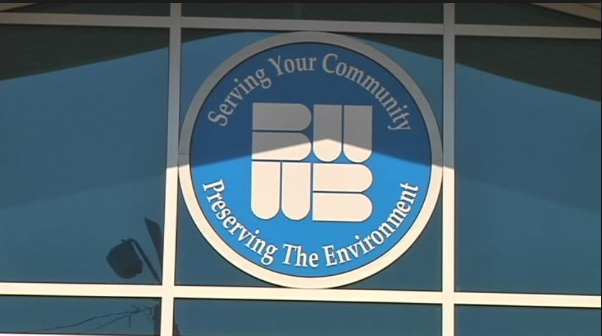Special to The Times

Undetected household leaks are the number one cause of high water bills. In fact, nearly 1 trillion gallons of water is wasted each year due to leaks in or around a person’s home. That equates to a substantial amount of money being flushed down the toilet!
Birmingham Water Works (BWW) has been raising awareness during Fix-A-Leak Week, which ends March 26.
“This is a great opportunity for education and conversation about staying on top of leaks,” said BWW Spokesman Rick Jackson. “It’s our goal to sell quality water at the lowest price possible, and having our customers be able to quickly detect and correct household leaks will help keep down the cost of their monthly bill.”
Throughout the week, customers can walk into the payment center and receive easy, do-it yourself tips that prevent leaks from escalating one’s bill, in addition to information about leak detection. Free toilet flappers will be available and upon request, customers can have a technician to visit their home to check their property for leaks, at no cost.
The average home wastes 20,000 gallons of water per year due to leaks.
Dripping faucets, running toilets, and leaking water heaters are obvious places to find water leaks. Others include cracked water supply lines that allow water seepage to go unnoticed. The best way to prevent missing these leaks is to schedule regular maintenance and waterline checks every quarter, or at least twice yearly.
Jackson said that unknown water leaks are either a sign of habitually making no effort to check, or simply not knowing how to find them.
“Leak detection is vital in making sure water bills stay at bay, and oftentimes, customers can easily alleviate the possibility of a leak becoming a major problem on their property [if they look]… I think it’s a combination of not wanting to break habit and simply just not knowing how to detect leaks [yourself]. Believe it or not, in many cases the customers can easily repair household leaks themselves,” said Jackson.
Major Water Leaks
Water supply line leaks occur between the meter, and the home, in the water supply line. Supply pipe lines are usually submerged 3 feet beneath ground surface, and leaking water moves along the pipe to the back of the meter, and to the inside of the meter box. Rain irrigation run-off is sometimes the reason water ends up inside the meter box, but if this is not the case the supply line may have a leak.
Jackson said that the number one cause of a high water bill, are faulty toilet flappers; in which case customers can fix these minor problems themselves. But if a leak is more complicated, he advises you call a plumbing professional to keep from creating more damage to the needed repair.
Whole house meter checks are a good way to identify multiple leaks on your property.
“Customer’s should know that all water sources should be off inside the home when checking their whole house meters for leaks” Jackson said. “When everything is off inside the home, the red triangular dial on the water meter should stand still. If it continues to spin once all water supply sources are shut off, then that’s a strong indication that there’s a leak on the property.”
Major water leaks can also occur in whole house humidifiers. These humidifiers are commonly found in homes with forced-air central heating systems, and can be found connected to the furnace ducting, directly plumbed to the water supply pipes, providing a constant water source to the appliance’s water reservoir. Customers who have whole house humidifiers should routinely check their humidifiers when performing leak checks on their property.
Outdoor Leaks
Customers should check all of their outdoor water sources for leaks, including outdoor faucets, swimming pools and fountains. A leak in a swimming pool or fountain can not only cause significant damage, but also astronomically high water bills. Studies show that a leak the size of a pinhole in the pools plumbing system (with 40-pound pressure) will lose approximately 970 gallons of water every day. This amounts to about 30,000 gallons of unconsumed or used water per month, and 360,000 gallons per year.
Interested in having your outside home meter checked for leaks by a professional? During national #FixALeakWeek BWWB technicians are taking appointments at no cost. Jackson said, “They will actually check the customer’s property to see if they have any leaks”.
Be advised that under normal circumstances BWWB will not check a customer’s property for leaks, but they will access the meter to see if there’s an indication that an issue may be prevalent.




